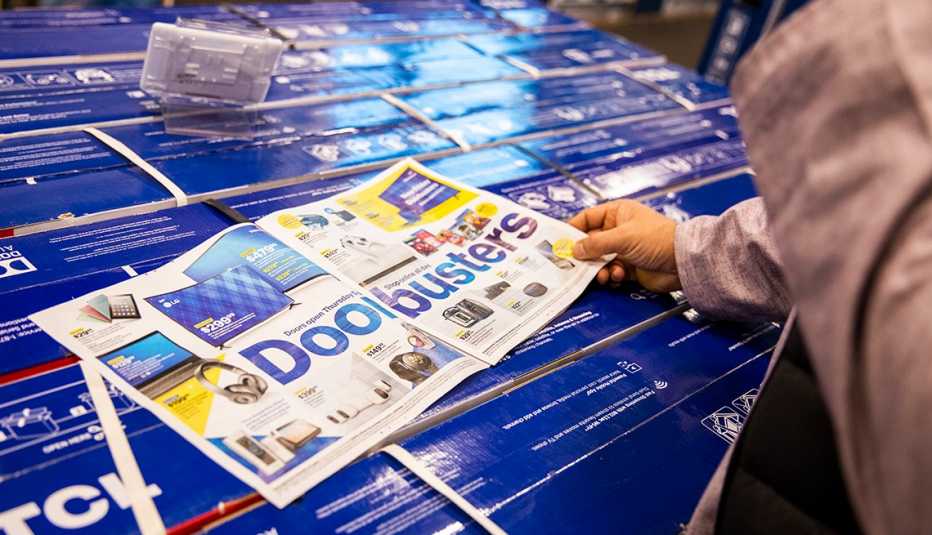Staying Fit


Doorbusters aren’t the only thing shoppers have in store for them this Black Friday weekend. There’s also a chance you’ll blow your holiday budget, and you have retailers to thank for that. Black Friday is a way for retailers to get you to shop, and they’ve got a bagful of strategies to get you to spend more than you may have planned.
“These guys [retailers] have had not one year, not two years but 100 years to figure out how to separate you from your money,” says Howard Dvorkin, chairman of Debt.com. “They are very good at it. They want it to be perceived that you are getting a deal, and sometimes that deal is not a real one.”


AARP Membership— $12 for your first year when you sign up for Automatic Renewal
Get instant access to members-only products and hundreds of discounts, a free second membership, and a subscription to AARP the Magazine.
Finding bargains on gifts is a big focus for consumers this holiday season. Inflation has eased a bit, but prices are still elevated, forcing shoppers to stretch their budgets to cover everyone on their lists. More than 75 percent of shoppers polled by PwC said they are looking for deals this holiday season to counteract higher prices. Whether you’re getting up in the wee hours of the morning to get your hands on a doorbuster deal or just looking for general discounts, there are lots of ways retailers entice you to open your wallet. Here’s a look at some popular strategies and how to avoid falling for these traps.
1. Unfounded sense of urgency
FOMO is real, especially during Black Friday weekend. Who wants to miss out on a hot deal on whatever they covet? Retailers are very aware of that fear and create a sense of urgency to get you into stores. “Consumers believe Black Friday is the be-all, end-all to get the very best deal,” says Trae Bodge, a shopping expert at TrueTrae.com. “Retailers may limit stock on certain things or make them available only for a certain time period. All those elements give us the sense that we have to jump right now.”
How to avoid it: Without a doubt, some deals will be available only during Black Friday weekend, but that doesn’t mean discounts won’t abound throughout the holiday shopping season.
Bodge’s rule of thumb on what to buy on Black Friday sales and what to wait to buy later:
Black Friday — Buy now
- Laptops and other tech
- TVs and other electronics
- Fall apparel
- Small appliances
- Beauty products
Black Friday — Wait to buy later
- Outerwear
- Winter apparel
- Toys
- Anything holiday themed




































































More From AARP
5 Ways To Stop Retirement Overspending
Spending too much? Here's how to cut downHow to Cover Rising Utility Bills
Home heating costs are soaring as we head into the winter
Save Money on Energy and Taxes
Give inflation a double whammy with energy savings and tax credits